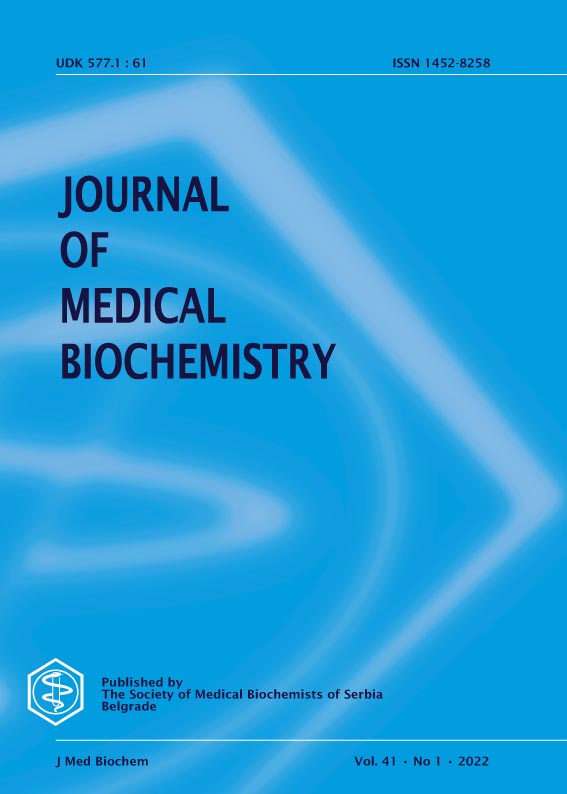Anemia of inflammation in patients with colorectal cancer: Correlation with Interleukin-1, Interleukin-33 and Galectin-1
Abstract
Purpose: Patients with colorectal cancer (CRC) have anemia often present as a consequence of chronic bleeding from tumor. The exact role of lL-33, Galectin-l and IL-l in the pathological genesis of anemia in colorectal cancer patients has not been elucidated yet. The main goal of this research was to analyze Gal-l, IL-l and lL-33 systemic values in anemic and non-anemic CRC patients. Methods: Concentrations of IL-33, Galectin-1 and IL-1 have been studied in blood samples of 55 CRC patients (27 without anemia and 28 with anemia). Results: CRC patients with anemia had more severe and local advanced disease compared to CRC non-anemic patients. Anemia positively correlated with higher nuclear grade, lymph and blood vessel invasion, as well as with higher TNM stage, detectable metastatic lesions in lung and liver and peritoneal carcinomatosis. Significantly higher IL-33, Gal-1 and IL-1 concentration have been found in sera of patients with CRC and detected anemia. CRC patients mostly had microcytic anemia, while ferritin values were in normal range. Analysis revealed positive mutual correlation between serum values of galectin-1, IL-1 and IL-33 in CRC patients. Level of hemoglobin negatively correlated with serum IL-33, Gal-1 and IL-1. We have analyzed the Receiver Operating Characteristic (ROC) curves of serum IL-33, Gal-1 and IL-1 showed that these cytokines can be treated as additional markers for anemia of inflammation in CRC patients. Conclusions: Predomination of Galectin-1, IL-1 and IL-33 in anemic CRC patients implicates on their potential role in anemia genesis and further development.
Copyright (c) 2021 Miodrag Jocic

This work is licensed under a Creative Commons Attribution 4.0 International License.
The published articles will be distributed under the Creative Commons Attribution 4.0 International License (CC BY). It is allowed to copy and redistribute the material in any medium or format, and remix, transform, and build upon it for any purpose, even commercially, as long as appropriate credit is given to the original author(s), a link to the license is provided and it is indicated if changes were made. Users are required to provide full bibliographic description of the original publication (authors, article title, journal title, volume, issue, pages), as well as its DOI code. In electronic publishing, users are also required to link the content with both the original article published in Journal of Medical Biochemistry and the licence used.
Authors are able to enter into separate, additional contractual arrangements for the non-exclusive distribution of the journal's published version of the work (e.g., post it to an institutional repository or publish it in a book), with an acknowledgement of its initial publication in this journal.

